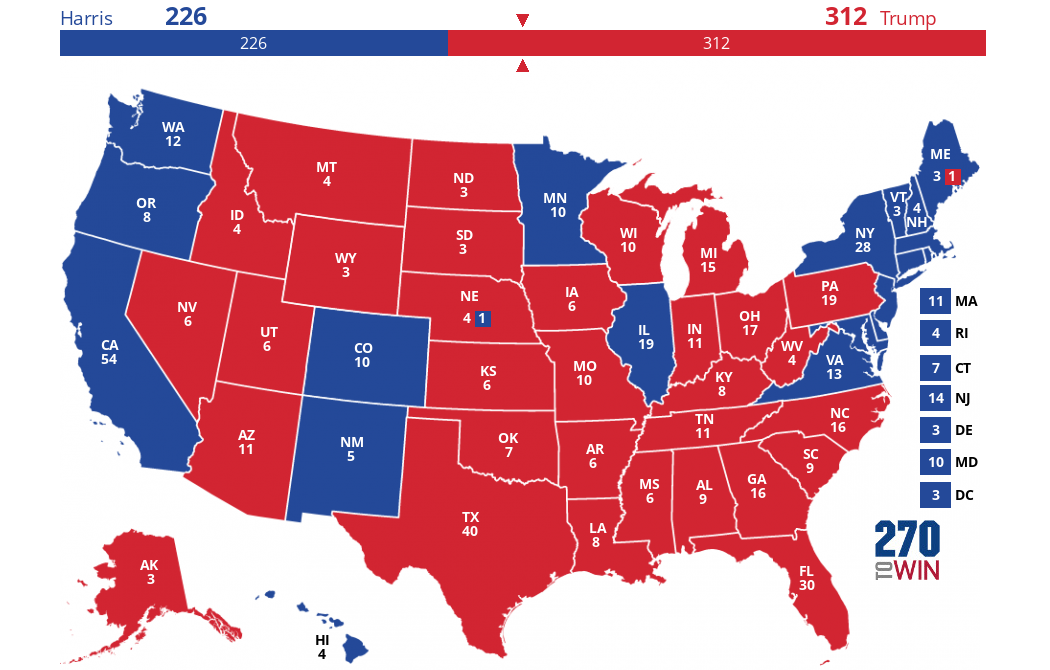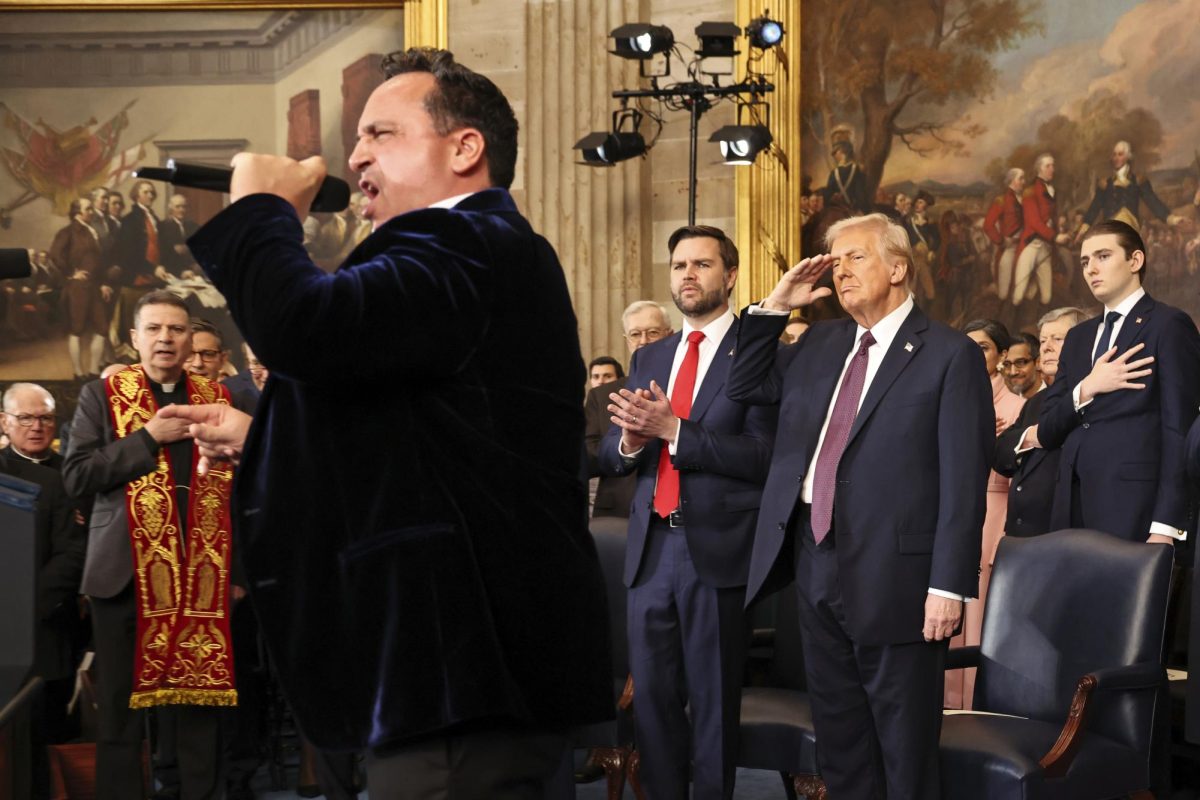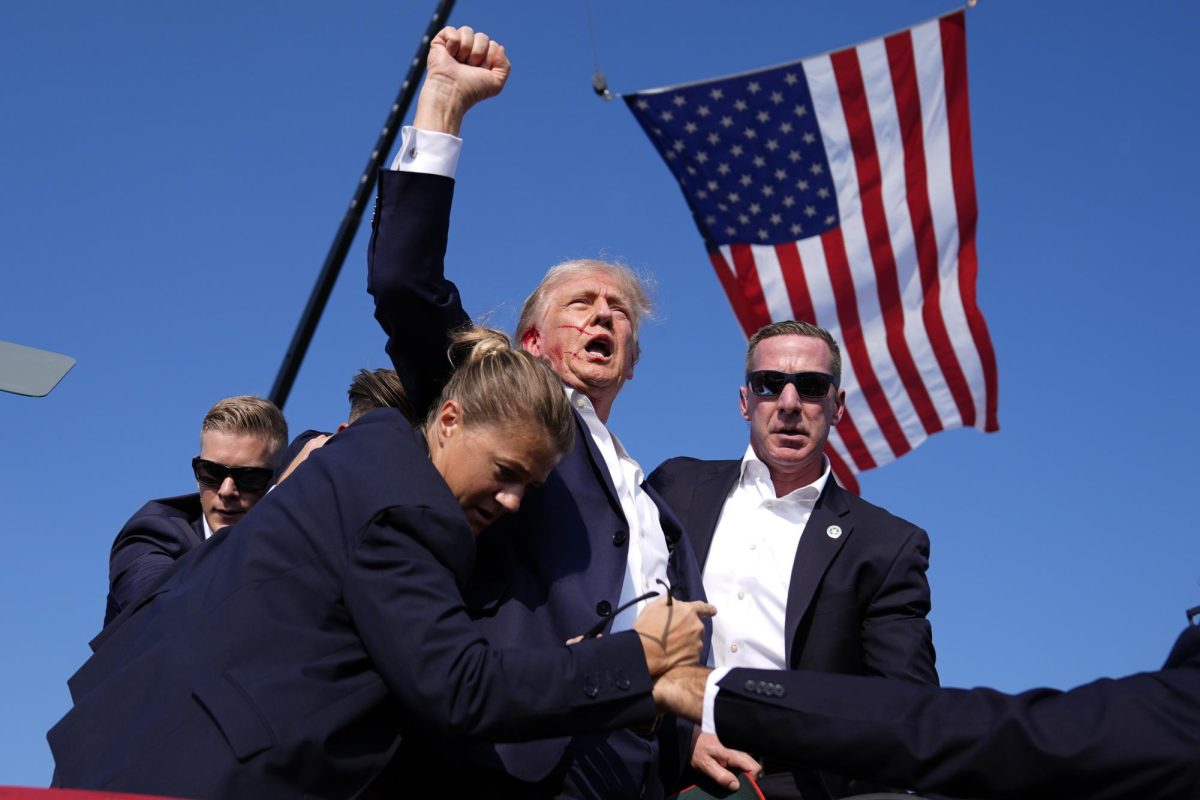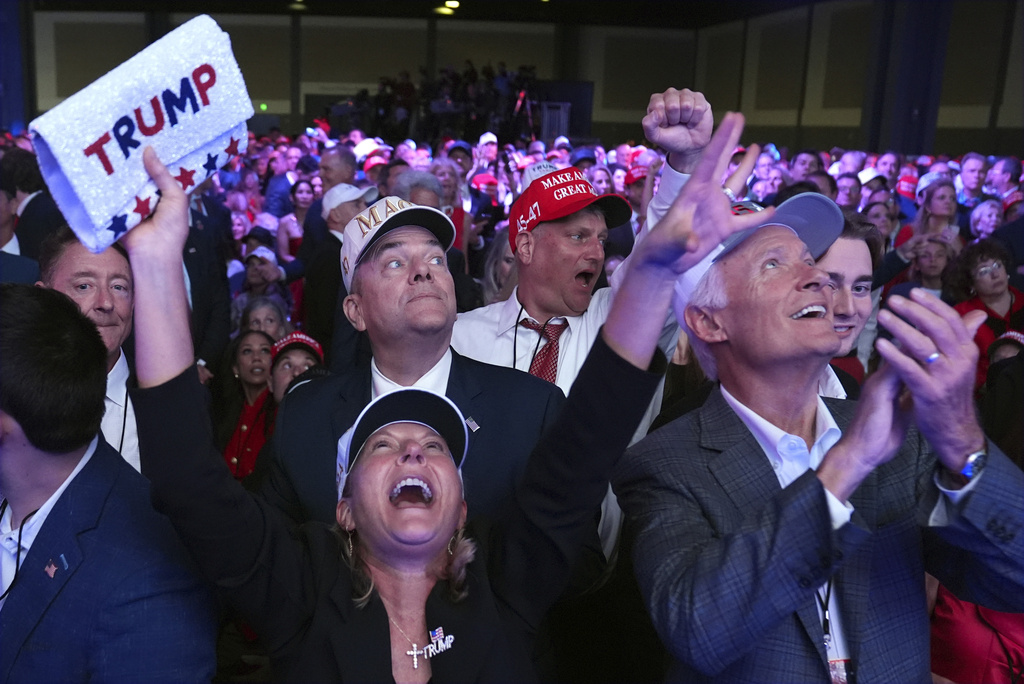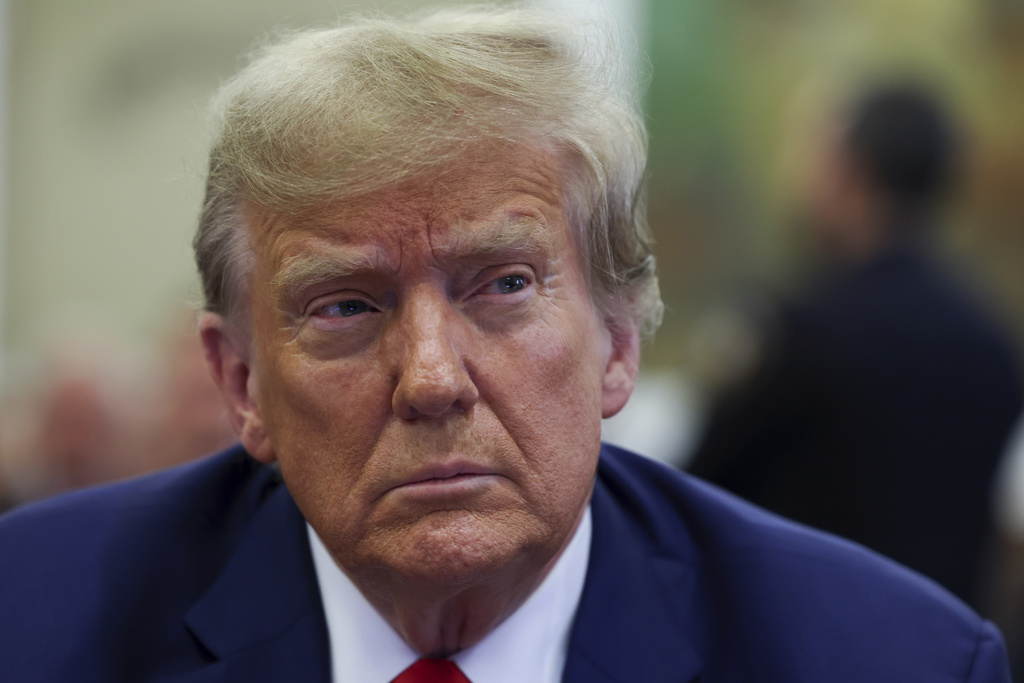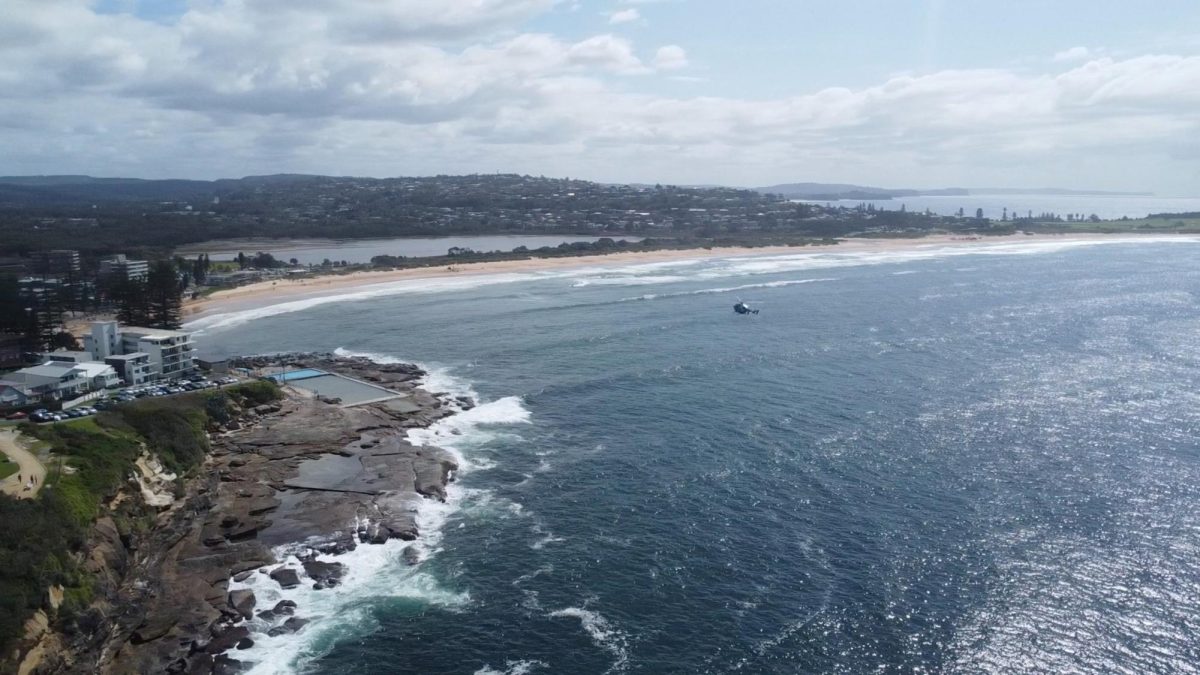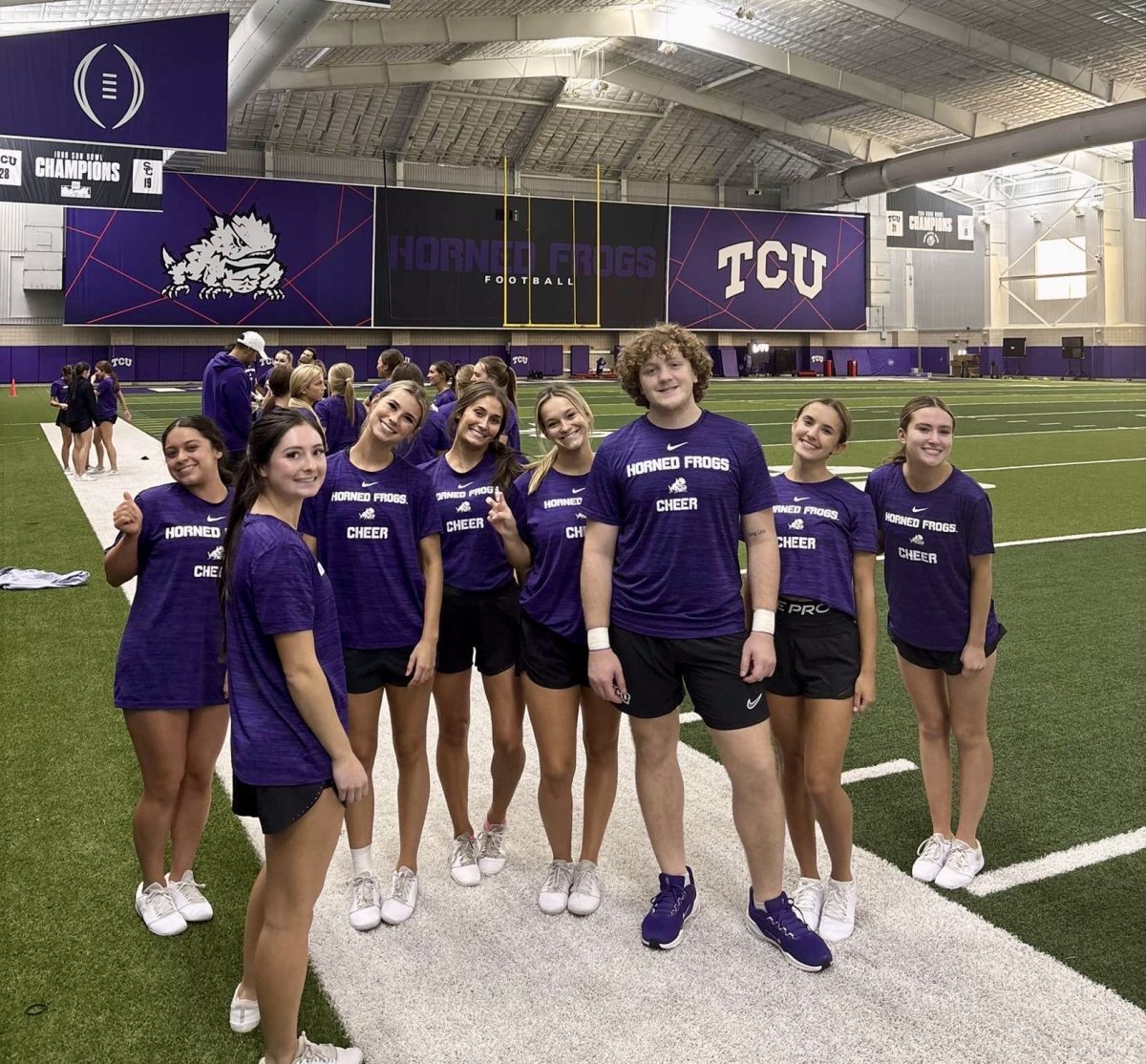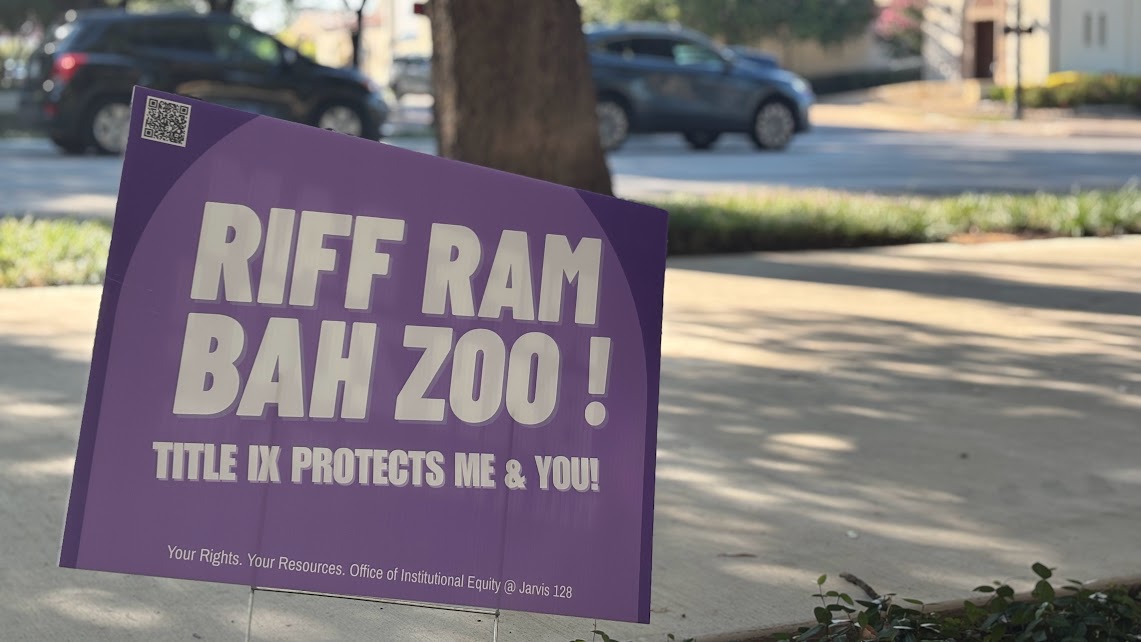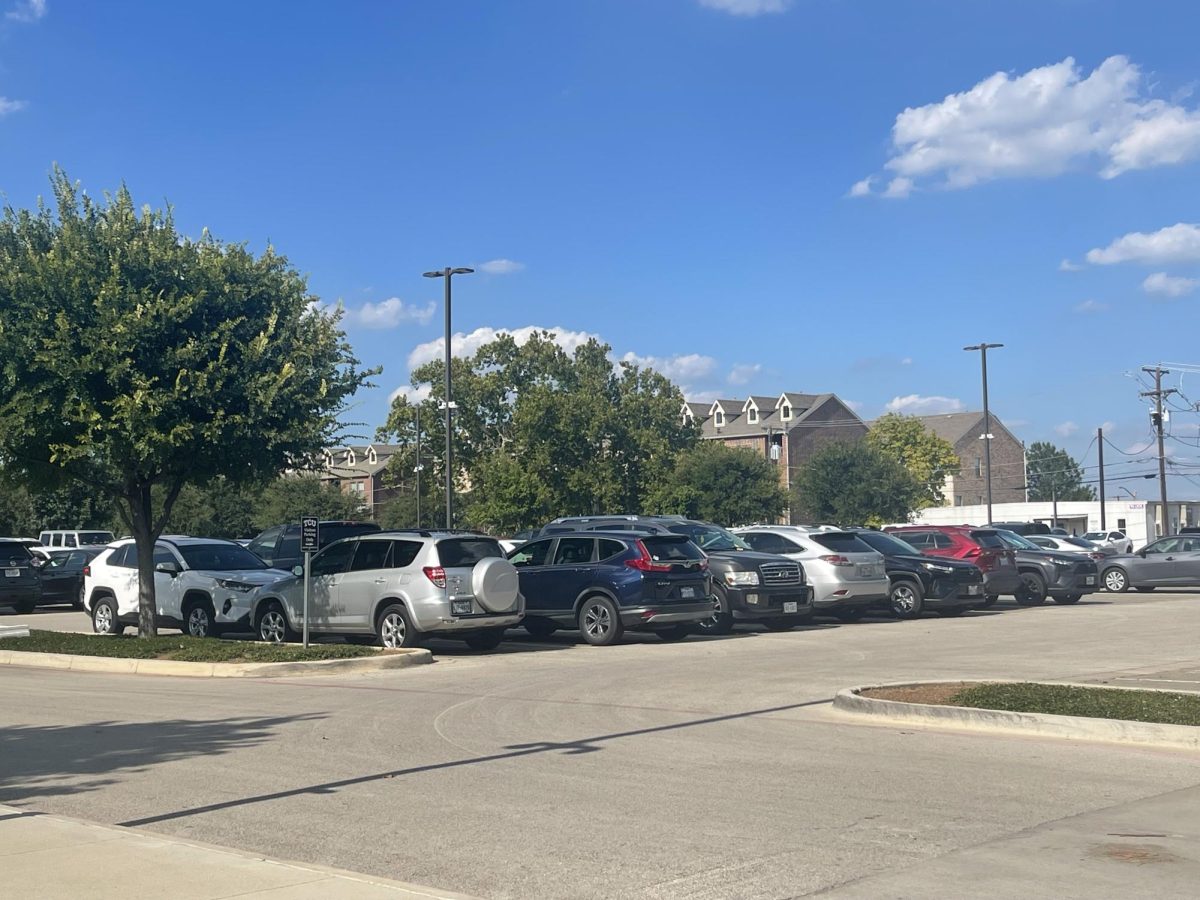Texans are voting today in the general election. Check back throughout the day and later this evening for PolitiFrog’s coverage of the elections and results.
8 a.m. — Donald Trump wins the U.S. Presidential election
Reporting by Esra Ghanim In the early morning of Wednesday morning, Donald Trump won the 2024 U.S. Presidential election, making him the 45th and 47th president of the United States, according to the Associated Press. As of 8 a.m. CST on Wednesday morning, President Trump received 277 electoral college votes and Vice President Kamala Harris has received 224. Throughout this election, we followed swing states closely. There were seven highly contested swing-states–Michigan, Wisconsin, Pennsylvania, Nevada, Arizona, North Carolina and Georgia. Of the swing states called so far, Trump has won each one. However, as of Wednesday morning, Michigan, Nevada, and Arizona—though leaning Republican—have not yet been called, according to the Associated Press. The Harris campaign was still enthusiastic on Tuesday evening as votes were still being counted. “We still have votes to count. We still have states that have not been called yet. We will continue overnight to try to make sure that every vote is counted, that every voice has spoken,” Harris campaign co-chair Cedric Richmond said to Harris’ supporters at Howard University. Harris is expected to address her supporters today, according to NBC Washington.
8 p.m. — How the Associated Press calls elections
Reporting by Esra Ghanim and Caleb Gottry TCU 360’s coverage will call races as the Associated Press (AP) calls them. AP News bases their race calls on their vote count, which is gathered from state and local election offices across the country, according to AP News. Throughout election night, the AP monitors incoming votes at the county level while simultaneously working to determine the number of ballots that are uncounted. 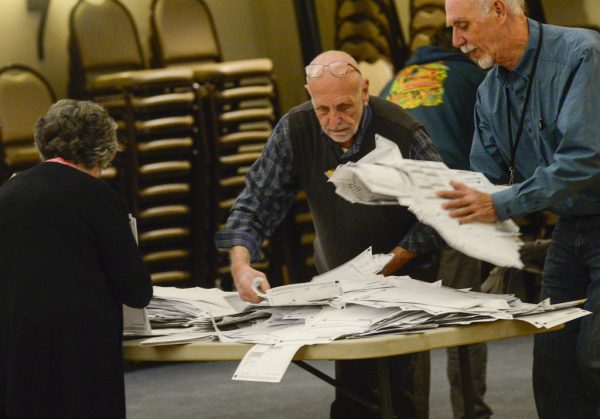
6:30 p.m. — Understanding the electoral college
Reporting by Esra Ghanim The electoral college is not a place, it’s a system. Understanding the electoral college system is fundamental to understanding the U.S. Presidential election. Unlike other U.S. elections, U.S. presidential and vice presidential candidates are not elected directly through a popular vote. Each state, and Washington D.C., has electors based on its representation in Congress, totaling 538. Maine and Nebraska assign their electors using a proportional system, however in the remaining states, the winner gets all of the electoral votes for that state. In other U.S. elections, candidates are elected directly by popular vote. But the president and vice president are not elected directly by citizens. Instead, they are chosen through the Electoral College process. Voters in each state cast ballots, which determine the allocation of that state’s electoral votes. A candidate must secure at least 270—out of the 538— electoral votes to win, according to the United States Government.
6:10 p.m. — How single-issue voters could make a difference at the polls
Reporting by Esra Ghanim and Shane Manson In highly contested swing-states, single issue voters could be the difference in the presidential race. 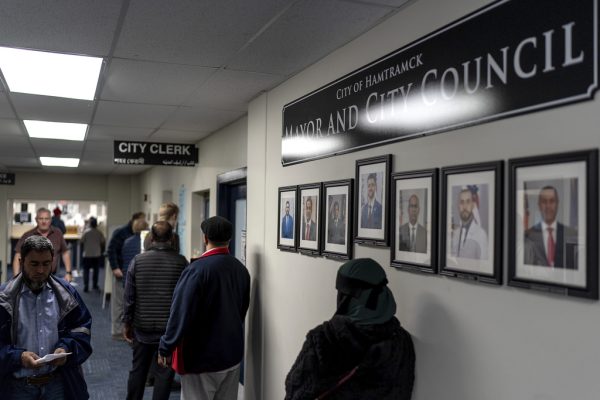
5:45 p.m. — Absentee ballots may be biggest obstacle for first-time voters
Reporting by Cecilia Murphy For many Gen Z citizens, the 2024 election is their first chance to exercise their civil duty to vote. On TCU’s campus, however, like many other college campuses around the country, some students are unable to participate in this year’s election as they attend college outside of their voting counties. Charlotte Wunz, a 19-year-old TCU student from Travis County, was unable to vote, even by absentee ballot. “I was told [by Travis County officials] I would have to drive all the way back to Austin [today] in order to vote,” Wunz said. “It was really upsetting.” 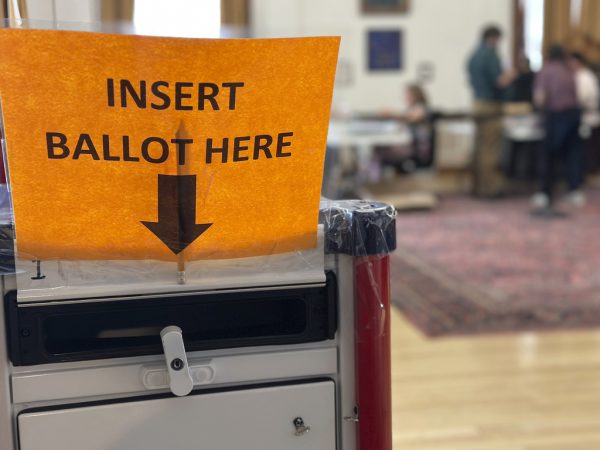
5:15 p.m. — DJs at the Polls: Making Democracy Dance
Reporting by Andrew Lindsey Instead of twiddling their thumbs while waiting in line, voters were treated to funky beats as the bass line pulsed through the parking lot of Celeste’s Ballroom in Fort Worth. DJ JayCo transformed an ordinary polling place into something that feels more like a block party. As voters emerged from casting their ballots, many couldn’t help but move to the rhythm, some even breaking into impromptu dance moves. “I’m just trying to promote democracy and get people out here to have a good time while they’re waiting in line,” said Jason “DJ JayCo” Conley, who started manning the turntables at noon. With 14 years of DJ experience, Conley knows how to read a crowd – even one that’s here to perform their civic duty rather than party. 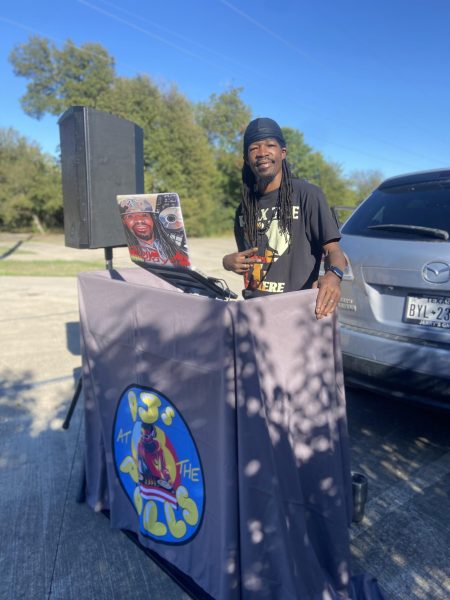
5 p.m. — Nearby polling station brings FWISD community together on election day
Reporting by Analise Wachtel R.L. Paschal High School’s community was on full display today at the polling station, where Fort Worth Independent School District security guards played a vital role in ensuring a smooth voting process. These guards direct traffic and guide voters to their designated areas. Voters walked, drove cars, mopeds and scooters to get to the polling station. During their duties, the guards exchanged greetings and friendly waves with students, adding a personal touch to the civic atmosphere as voters young and old returned to cast their ballots. One voter, who wished to remain anonymous, said he chose to cast his ballot at Paschal because it was his alma mater, giving his voting experience a sense of nostalgia. Jacklyn, a 22-year-old Texas Christian University student who asked to be identified by her first name only, said she chose to vote at Paschal because of its close proximity to the TCU campus. The polling station at Paschal High School highlighted a sense of unity within the FWISD community. The Fort Worth Independent School District is hosting polling stations at 31 elementary, middle and high schools today. R.L. Paschal High School serves as a polling station today from 7 a.m. to 7 p.m.
4:15 p.m. — Voters at Como Community Center consider personal beliefs
Reporting by Sofie Ruiz and Alexis Garcia Voters flock to the Como Community Center in West Fort Worth to cast their votes. 
3:30 p.m. — Poll workers at Tanglewood Elementary and Daggett Elementary stress the importance of voting
Reporting by Courtney O’Connell and Sam Snellen Poll workers have expressed the need to not only vote but also the need to educate oneself on the nation’s politics and democracy as a whole. Adrianna Smith, a poll worker at Tanglewood Elementary School shared her thoughts on this topic. “I believe kids need to know civics better and understand that democracy is not freely given,” Smith said. “I feel like if people don’t engage in civics and learn how fragile it is, then we can lose it.” Mrs. Smartt, a poll worker at Daggett Elementary School who asked to be identified by her last name only, has been a poll worker for the last three elections and takes pride in helping people learn about voting and helping people get over any fears about the whole process. “For first time voters it can be nerve racking, but it is important for everyone to exercise their right to vote,” she said. “Worry about what you can control and that is coming to the polls and voting. Everything else will happen outside of your control, so don’t get all worked up over it.” For Smith at Tanglewood, it is her fifth time working as a poll worker in an election. While working the election during the 2020 presidential election, she experienced the controversies first hand when Trump’s campaign accused states of voter fraud. Smith said she believes that the voting system is free and fair. “They are so strict,” Smith said. “We can’t even have phones in there. I feel like I know the system very well where we work, and maybe every state is a little different but I feel like it’s very secure. I 100% have faith in our elections, even if it doesn’t go my way.”
3 p.m. — International students share their thoughts on the election
Reporting by Isabella Tankersley One entire group of TCU students didn’t vote today and that’s because they can’t. Sophie Degrand, a sophomore biology major, is from Canada and can’t vote in this election because she is not an American citizen. “If I had the chance to vote in this election I would because I believe it is important to exercise your right to vote and ensure your voice is heard,” she said. Despite being unable to vote, Degrand tries to stay informed about the election because she feels she is still affected by the outcome. Not all international students choose to stay informed about the presidential election, however. Katherine Clavijo is a junior strategic communications major from Ecuador. She said she is not concerned about the results since she is not from the United States. “If I had the chance to vote I would not, because I am not informed about the election and do not want to make a decision that could influence something that I do not know much about,” Clavijo said. She added that she still thought voting is important for American citizens.
2:30 p.m. — TCU students say media influences first time voters
Reporting by Perrin Gilman A steady crowd of voters from TCU and the Fort Worth community went to cast their ballots at R.L. Paschal High School earlier this morning. Meagan Moseley, a former Paschal High School student, went to vote for the first time with her mother, Jennifer Moseley. Meagan Moseley believes that the most important issues in this election are “immigration, money and inflation.” Jennifer Moseley shared advice regarding first-time voters like her daughter. She said to “do it right” and stressed the importance of young voters in this election. According to the Center for Information and Research on Civic Learning and Engagement, 41 million Gen-Z-ers are eligible to vote. 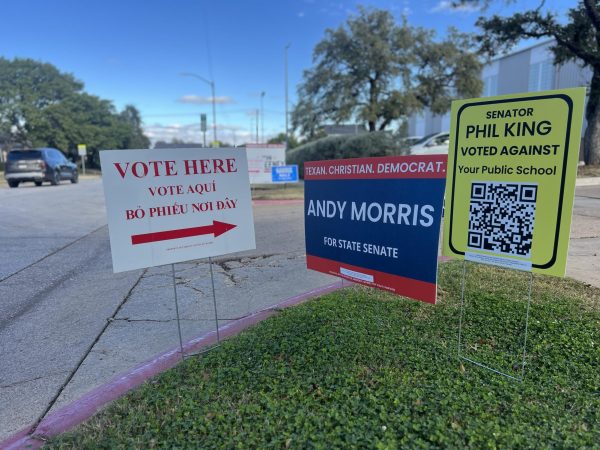
2 p.m. — Poll greeters campaign at Tanglewood Elementary
Reporting by Molly Curran Tanglewood Elementary had more of a crowd than Southcliff Baptist Church this early afternoon. Voters stand outside of the school entrance to the polling site, poll greeters hand out campaign flyers and poll workers guide voters through the polling line. Outside of the polling site, poll greeters encourage voters to vote for a specific candidate. John McQueeney is running to be in the Texas House of Representatives to represent District 97. McQueeny and his wife both graduated from TCU. They attended last night’s men’s basketball game at TCU along with their friends. Today, the group stood outside of the Tanglewood Elementary polling site, encouraging people to vote for him.
1 p.m. — Southcliff Baptist Church hosts voting with curbside options and language interpreters
Reporting by Molly Curran Southcliff Baptist Church had a steady crowd this morning at 11 a.m. rolling into their voting polls. 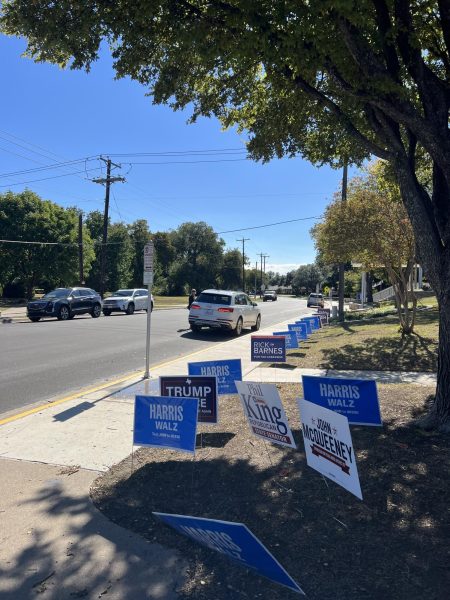
12:30 p.m. — TCU leaders encourage voting
Reporting by Caleb Gottry During early voting, more than 8,300 Tarrant County voters cast their ballots in the Brown Lupton University Union, according to TCU. 
10 a.m. — Economics: what to know for election day
Reporting by Elle Wood and Crystal Polglase The state of the economy is one of the factors that voters are taking into consideration in this election. After researching and interviewing TCU economics professor, Graham Gardner, here’s what we found out: “No matter who wins in November, expect to see the federal budget deficit grow significantly,” according to CNN. A deficit occurs when the government spends more revenue than it collects. “Trump nor Kamala’s policies are aimed at creating new jobs in the economy,” Gardner said. “I do think there’s one part of expanding the child tax credit that could possibly allow people to spend more time at work, but I don’t think the evidence is super clear on that.” 

